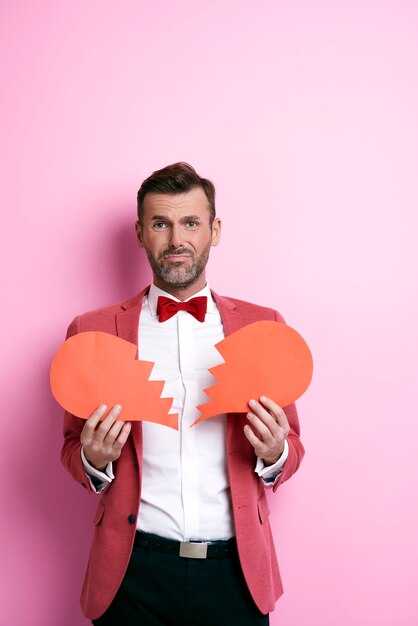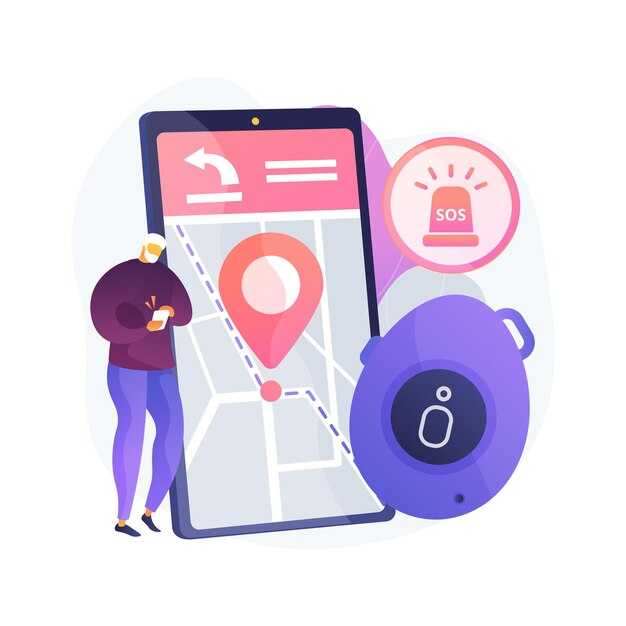If adults you relied on betrayed you as a child, your sense of self-worth and personal boundaries can be so damaged that you become blind to further betrayals. You may recognize you’re receiving far less than you need and deserve in a relationship, yet the thought of ending it feels unbearable, so you convince yourself it’s not that bad. That denial is driven by the hunger for love — admitting the truth would mean losing whatever tiny scraps of affection remain, and that loss can feel impossible to face. Consider this example: a woman stands on the edge of admitting painful facts about her boyfriend but keeps persuading herself she’s simply being paranoid. Is she overreacting? Judge for yourself. One of the most remarkable things about people who suffered abuse in childhood is that their longing for care and tenderness persists even after others have left. Even when relationships are thin and patchwork, those who have been hurt keep trying to make do, accepting time-filler connections and pretending to be okay when the emptiness finally becomes undeniable. The craving to love and to be loved stays alive. Hurt people often try to convince themselves the crumbs are sufficient — shouldn’t they be? Have you ever been treated as if you don’t matter and then turned that judgment inward: Maybe it’s just me. Am I too demanding? Too needy? Will I be abandoned if I speak up? That voice is the echo of trauma. Underneath it lies a natural capacity for love, not an unreasonable neediness. It’s possible to settle for less, but if there’s a whisper of injustice in your heart — that when you opened your life to someone you deserved more than casual treatment — pay attention. Perhaps choices or boundary-setting were imperfect; an untraumatized person might have acted differently. Still, that tender part of you that longs for connection is beautiful. It keeps reappearing like a dandelion through concrete. No matter what happened to you then or how it bent your expectations, you were made to be loved. Scraps may have enabled survival, but it’s time to change the terms: no more crumbs. The following is a reply to a woman who wrote in under the name Seline asking for help deciding whether her relationship is healthy. Her letter reads: “Hi Anna, please can you help me decide whether I’m in a healthy relationship or not because I can see strong arguments both ways. I have CPTSD from childhood during which I was bought and sold for sex. Most of the time was spent at my parents’ home and going to school, but sometimes I spent time away — up to three months abroad with abusers. This has left me with loads of self-esteem, trust and shame issues, as well as problems around money. It might be relevant that to this day, at 49, I still can’t decide if my parents are evil or just weak and victimized. I know they treated me very badly.” That passage stands out for its plainness — the writer describes trafficking and time away like a fact in a biography, almost compartmentalized, as a way to keep living without being defined by it. It’s understandable to try to carry such horrors lightly, but that background explains many difficulties in detecting danger in relationships. If your parents trafficked you, they weren’t victims in that role; they did something horrendous and never took responsibility, which compounds the injury. Setting that aside as context, the story continues: three years ago Seline moved to a new place and worked long hours in a different town, so she barely knew neighbors beyond cursory hellos. A man who would later become her boyfriend — call him Anthony — was her next-door neighbor. She first glimpsed him while struggling with something during the move; they made eye contact through his kitchen window. Another neighbor helped her; Anthony either missed it or chose not to intervene. When she later asked him, he didn’t seem to remember. A few months later they shared a drink and although there was mutual liking it didn’t go further; she was busy with work. They became involved eight months ago after her job ended badly. It was summer; she was in the garden, he was working on his windows; a strong sexual attraction blossomed. She hadn’t been intimate with a man for 16 years and thought she might never want to be again, so discovering this desire felt like a gift. They drank and chatted outdoors a few times. He cooked dinner for her one evening but told her it wasn’t a date. She returned the invitation a couple of weeks later, flirted boldly, and when he didn’t initiate at the end of the night she asked why — that’s when he finally kissed her. Later they kissed a lot; she wanted more, hesitated, and when he at last attempted to escalate she panicked, saying they hadn’t even been on a proper date. He accepted and they immediately walked to a nearby restaurant she knows he dislikes. At times during that dinner he seemed bored; when the bill arrived she prepared to split it, he didn’t offer and allowed her to pay. That made her uneasy, especially after losing her job, but she said nothing. They went back to his place and had sex that was gentle and considerate; the next day he declared he’d liked her since he first saw her but thought she was unobtainable. They dated from then on. Over eight months he took her to meet his parents three times and introduced her to many friends repeatedly. Around six weeks into the relationship he told her an ex had texted him to say they were still friends; she resented that but reminded herself she was still friends with two exes and had no feelings for them, so why should his be different? Their split was four years old. On a walk he received a text saying his ex wanted him to collect a record player; three months later the same message came again. He initially answered vaguely. A few days later he took Seline along to pick it up but never told the ex she was coming, left her in the car and parked down the street so they didn’t even meet. The trip felt evasive to Seline and raised suspicions. About four months into the relationship, while he was away, he texted that he loved her; when he returned and she asked, his response was gruff and he said he’d already told her how he felt. Since then he has professed love three more times, but only once without her prompting. His mood swings between tenderness and cold distance. She began to notice his phone buzzing constantly with long texts from his ex; when she confronted him, he said they’re friends and began a sentence that trailed off — perhaps suggesting he cared for her because she’s isolated and mentally unwell. He accepted a building job at the ex’s house for four days, which he explained was “only for the money.” Things escalated on Anthony’s birthday. He mentioned being awkward about needing to act cool because she might not approve of some people; Seline said she’d be fine if the ex joined the group. The ex did come, stayed out drinking with them, and brought charm and liveliness. Seline spoke with her; the ex confessed feeling strange seeing Anthony with someone new. Later the ex left in a taxi with one of Anthony’s single male friends. One of Anthony’s pals asked, hypothetically, how he would feel if those two ended up together. Anthony, intoxicated, replied slowly and firmly, “I loved her and I still do love her.” The room fell quiet. Seline didn’t want to raise a scene on his birthday, so she stayed silent. The next day, hungover, he still seemed not a good time to discuss it, but when they met outside she couldn’t hide her hurt. She told him people should fall out of love with their ex before beginning a new relationship; he shook his head and said she was wrong, then hugged her. She asked whether he was with her because the ex is difficult while Seline is passive and eager to please; he said no but didn’t elaborate. He offered comfort without addressing the underlying problem. Seline worries that his heart still belongs to the ex: he stumbles when saying “I love you” to her, whereas his declaration about the ex had been calm and certain. She is unemployed, without financial stability, family, or many friends — does that make her too needy to object? Is it acceptable for him to love both women? She doesn’t want to sabotage something good but refuses to accept half a love. The response to Seline’s letter picks apart several themes. First, the matter-of-fact way she described being bought and sold — the brief noting of school versus being sent abroad with abusers — explains why many abuses are compartmentalized in survivors’ narratives. That compartmentalization is a survival skill, not a dismissal of the harm. Saying she can’t decide whether her parents were evil or victims indicates confusion; if they trafficked her, their choice was fundamentally abusive. Whether evil or complicit, they have not taken responsibility, which is one of the worst betrayals imaginable. Moving three years ago into a new place while working long hours left her isolated. The fact that Anthony saw her struggling during the move and walked away — while another neighbor helped — is an immediate red flag: someone who observes a person struggling and simply leaves is demonstrating a lack of basic supportive partnership. Partnerships are supposed to involve mutual practical help; the initial instinct to tolerate or excuse that behavior can be traced to survival training that makes people with childhood betrayal more forgiving of neglect. Their budding attraction and subsequent flurry of drinks and kisses are understandable and beautiful in one sense — the capacity to feel sexual desire after long abstinence is a life-affirming sign. But for someone with CPTSD and boundary challenges, alcohol can be a dangerous lubricant: it clouds judgment and lowers inhibitions that are already vulnerable. When trauma and drinking combine, the behaviors trauma pushes you toward become harder to resist. Drinking isn’t inherently wrong in safe circumstances, but on dates and in emotionally risky situations it’s wise to be cautious; sobriety preserves clarity for people who carry wounds. In the early stages Anthony’s reluctance to pursue and initiate — letting Seline steer logistics, ask whether it was a date, and even place her card for the bill — suggests a pattern: he allowed her to create the momentum instead of volunteering that role. That tendency indicates someone who will not consistently step into the driver’s seat of a partnership; many people need to see the other person make clear moves and investments to feel secure enough to fall in love. If the other person never demonstrates that initiative, emotional availability can remain limited. The dynamic where physical intimacy advances without a clear, mutual courtship pattern — weeks of kissing without dating rituals or the partner failing to ask out or pay — is something to notice. A healthy courtship includes small rituals of attention and responsibility; asking for a date, being courted, and having the other person show up are not outdated notions but useful signals of intention. Reclaiming a standard where the other person asks, plans, and pays for early dates can clarify intentions and filter out people who aren’t willing to step up. For many survivors, ceasing to pay or chase on first dates sends a strong boundary signal and changes relational chemistry: those who only come for convenience won’t remain, while those prepared to invest will step forward. As for Anthony’s declaration that he loved her because she seemed unobtainable, that explanation doesn’t account for the hesitation and entanglement with his ex. When someone is tied up in an unresolved relationship with an ex — especially if the ex is emotionally unstable and persistently reaching out — it creates chronic emotional unavailability. The pattern described — loving proclamations expressed from afar or while traveling, distance-based tenderness but coldness in day-to-day interactions — is consistent with avoidant or unavailable attachment. That style can be devastating for someone whose earliest attachments were traumatic. The ex’s regular, long texts and the incident with the record player feel manipulative: repeated demands, emotional instability, and orchestrated scenarios to keep him involved. Having him accept work at her house, take covert trips to collect possessions, and fail to introduce his new partner properly all point to poor boundary-setting and a reluctance to close the old chapter. The ex’s behavior at his birthday — coming, dominating the party, buying rounds, ending up leaving with his friend — looked like intentional attention-seeking. For an ex to behave as the “life and soul” of a party in front of a new partner is inappropriate; if an ex cares about a former partner’s chance at a new relationship, decency suggests stepping back, taking a lower profile, and not stoking jealousy. Anthony’s drunken declaration that he still loved his ex and the stunned silence that followed were further red flags. Silence about the issue, avoidance of honest conversation, and lack of a clear commitment are all signs of someone not yet available. Seline’s restraint in not escalating on his birthday was sensible, but his failure to apologize, reassure, and set boundaries with the ex afterward — to say, “I’m serious about you; I won’t put you in that position again” — left the core problem unaddressed. The likely reality is that this entanglement with the ex won’t resolve while he remains ambivalent and codependent toward her. Emotionally unavailable partners often offer crumbs: small kindnesses that momentarily soothe, but not the steady care necessary for healing and growth. That pattern can be especially seductive for someone who’s avoided relationships for years; a little love feels better than none, but it isn’t the whole meal. The writer who answered Seline’s letter encourages listening to the resilient part of her heart that still wants a genuine partnership and urges honoring that impulse. With some structure and conscious decision-making before entering another relationship, a different and healthier path is attainable. For survivors who worry that trauma clouds their ability to spot red flags, keeping a checklist of warning signs handy can help discern when a situation is unsafe or when self-doubt is spiraling. There is a freely available PDF titled “Watch Out for These Red Flags” that can be downloaded to consult whenever confusion or danger arises. The message for anyone reading this is clear: crumbs were once useful for surviving, but they should no longer define a life meant for deeper, steadier love. No more crumbs; demand the care you deserve, set clear boundaries, and let the person who proves they can meet those standards be the one who stays.



 Чому ви сумніваєтеся в собі, коли їхня погана поведінка очевидна">
Чому ви сумніваєтеся в собі, коли їхня погана поведінка очевидна">

 The 5 Stages of a Dismissive Avoidant’s Mind When You Go Silent">
The 5 Stages of a Dismissive Avoidant’s Mind When You Go Silent">
 What To Do When Someone Makes You Feel Creeped Out">
What To Do When Someone Makes You Feel Creeped Out">
 Avoidants Texted You After Silence? This Brutal Reply Will Destroy Them | Jordan Peterson">
Avoidants Texted You After Silence? This Brutal Reply Will Destroy Them | Jordan Peterson">
 Why does the Anxious partner have to sacrifice for the Avoidant?">
Why does the Anxious partner have to sacrifice for the Avoidant?">
 Anxious Attachment leads to Heartbreak until you do this…">
Anxious Attachment leads to Heartbreak until you do this…">
 The Hidden TRUTH: Why Avoidants Disrespect You – How to Pass Their TEST | Avoidant Attachment Style">
The Hidden TRUTH: Why Avoidants Disrespect You – How to Pass Their TEST | Avoidant Attachment Style">
 Інтерв’ю з доктором Джеймсом Пеннебекером">
Інтерв’ю з доктором Джеймсом Пеннебекером">
 Спробуйте Ці Заходи Надзвичайної Ситуації для Перерегулювання Будь-де">
Спробуйте Ці Заходи Надзвичайної Ситуації для Перерегулювання Будь-де">
 Припиніть допомагати своїй дружині.">
Припиніть допомагати своїй дружині.">
 Жорсткі сигнали (Ви не усвідомлюєте, що надсилаєте) відштовхують чоловіків.">
Жорсткі сигнали (Ви не усвідомлюєте, що надсилаєте) відштовхують чоловіків.">